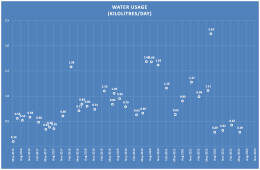HarryN
Solar Addict
Thanks everyone for the inputs.
You are right - there definitely are risks.
The deal outline has some protections, but of course you can't protect against everything.
The project is not intended to be a scam for either of us, but it is good to know about the historical problem that affects how the IRS will view it.
I guess in general I am trying to understand how this is really any different than companies that do:
- solar installs on homes
- retain ownership
- sell the power to you
- take the tax breaks
- etc
I have heard a little bit about the solar trailer project and will do some more reading on the subject. That was really a scam from the start though AFAIK.
You are right - there definitely are risks.
The deal outline has some protections, but of course you can't protect against everything.
The project is not intended to be a scam for either of us, but it is good to know about the historical problem that affects how the IRS will view it.
I guess in general I am trying to understand how this is really any different than companies that do:
- solar installs on homes
- retain ownership
- sell the power to you
- take the tax breaks
- etc
I have heard a little bit about the solar trailer project and will do some more reading on the subject. That was really a scam from the start though AFAIK.



